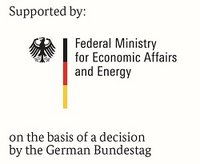DriveBattery2015
The German government considers electro-mobility as a topic of great strategic importance. Electric vehicles are expected to make a significant contribution to climate protection. To fulfil these expectations, technical hurdles have to be overcome. In this case, the battery system comes to focus on future research and development. Improvements are needed, especially in the areas of range, power density, reliability and durability simultaneous to massive cost savings.
The central research topic of DriveBattery2015 (http://www.drivebatt2015.de/) is the E/E-system of the battery. It is expected to make important contributions to fundamentals of battery safety, modelling and simulation. In addition innovation at system and component level as well as intelligent control and circuitry concepts lead to modular battery systems for electric vehicles.
The project is divided into nine work packages (TAs):
- TA0 Coordination
- TA1 Requirements Definition & Specification
- TA2 Model Development & Simulation
- TA3 Module Interconnection
- TA4 Sensors -Intrinsically Safe Current Sensing
- TA5 Isolating Switch & Protection
- TA6 Battery Management: Operating Strategies & Algorithms
- TA7 System Integration
- TA8 Testing and Validation
In the end, all theoretical investigations are validated on system level with a high-voltage demonstrator. The project members are leading companies of the whole value chain. This leads to basic innovations on the one hand and the implementation of the results in standardized products on the other hand. Therefore the project serves in a central manner the German government, to establish the leading market as a leading supplier for electro-mobility.
Acknowledgement

This research project is funded by the German Federal Ministry of Economics and Energy (BMWi) within "Verbundvorhaben DriveBattery2015 –Modulare Batteriesysteme basierend auf Parallel-und/oder Serienschaltung von HV-Batterien" (Project number 03ET6060F) and cared by Projektträger Jülich (PtJ). The responsibility for the content of this publication lies with the author.
Project coordination: Infineon Technologies AG
Project period:
- 1st phase: 01.08.2013 -31.01.2015
- 2nd phase: 01.09.2015 -28.02.2017